Ousted Condé China Boss Lets Loose on Publisher’s Moves in China

LONDON — With Sino-U.S. tensions at an historic high, does the new reporting structure at Condé Nast make sense for the Chinese market?
Former Condé Nast China president Sophia Liao, who was unceremoniously removed in September 2020 after Roger Lynch, chief executive officer of Condé Nast, took office, has her doubts.
More from WWD
Liao has emerged as an outspoken critic of Condé Nast’s new global direction with a series of widely shared articles published on her WeChat account after she won a labor arbitration against the publishing house last October.
As reported, the Beijing Chaoyang District Labor Personnel Dispute Arbitration Commission ruled that it “does not accept” Condé’s claim that firing Liao was legal. Instead, the commission said it accepted Liao’s claim that Condé Nast China has “unlawfully discharged its labor relations.”
Condé Nast China has appealed the decision.
As someone who worked for Condé Nast for more than 20 years, and who made drastic and successful changes after taking the top job in 2017, Liao said she is not out for revenge. Under her watch, GQ China became the most profitable edition due to the success of the WeChat-based product GQ Lab, yielding 200 million renminbi in revenue in 2018, the amount equivalent to several European editions combined, the publisher revealed at the time.
Instead, Liao told WWD in a statement that as a media industry leader, everything that Condé Nast does should be subject to public scrutiny. She also claimed that she turned down a 9.5 million renminbi, or $1.5 million, compensation package upon her departure.
“It’s one thing to break the law in China and to fire me. It’s another thing to make a big change to the business strategy and organizational structure of a global company,” she contended.
“The starting point of me writing these articles is simply to express my personal opinion. I do not think the company now has any trace of self reflection. Is it possible for the company to make any adjustments or changes as a result of my article? I don’t have any hope at all,” she added in the statement.
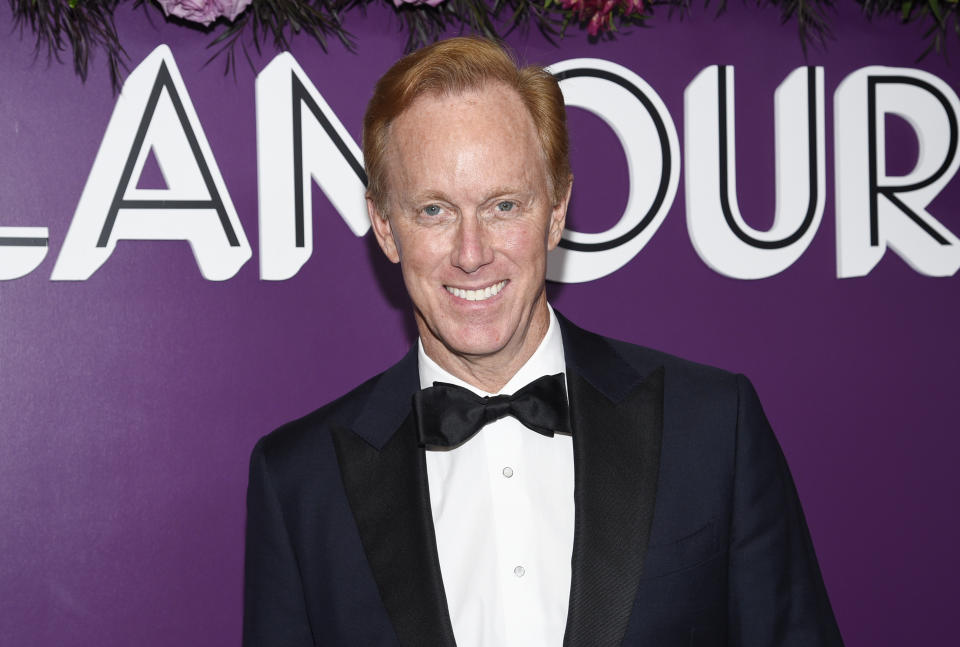
Evan Agostini/Invision/AP
Liao believes that Condé Nast’s globalization strategy, which sees the various regional issues report to bosses based in the U.S. and the U.K., will inevitably struggle in China because the value systems differ widely between the East and the West.
There is no doubt that Condé Nast, which is run by Lynch and global chief content officer Anna Wintour, values the Chinese market, and it remains of great economic importance to the publishing giant.
Vogue China is the only international edition — besides British Vogue — that has an editor in chief role within its non-licensed business; other editions of Vogue have rebranded the position to head of content.
“Are American editors really qualified to determine readers’ preferences worldwide? I don’t know the answer for other markets, but I’m very certain that the readers in China will express their standpoints through actions without hesitation,” Liao wrote on WeChat.
She added that “the current domestic environment is really no longer suitable for imposing American values on Chinese readers.”
“This magazine is officially published by China Pictorial, its superior unit is China International Publishing Group. Vogue magazine, Vogue WeChat, Vogue Douyin, Vogue’s Xiaohongshu, Vogue website, Vogue App, all articles issued under the name of Vogue, all images, any word, need to go through the final review from China Pictorial in advance. Only after their approval, can the content be published,” Liao wrote.
Another issue that could potentially cause consequences with regard to its relationship to China Pictorial is that Condé Nast has repeatedly described Vogue China’s editorial boss as editor in chief in Western media, while legally it really should be called editorial director.
Under China’s publishing regulations, foreign media companies are barred from directly operating in the market. They have to form partnerships with state-owned publishers that hold publishing permits. Under this structure, the editor in chief is a role reserved for Condé Nast China’s partner China Pictorial. The magazine’s masthead lists the top editorial job as editorial director, not editor in chief.
WWD has reached out to Condé Nast for comment, but it did not respond at press time.
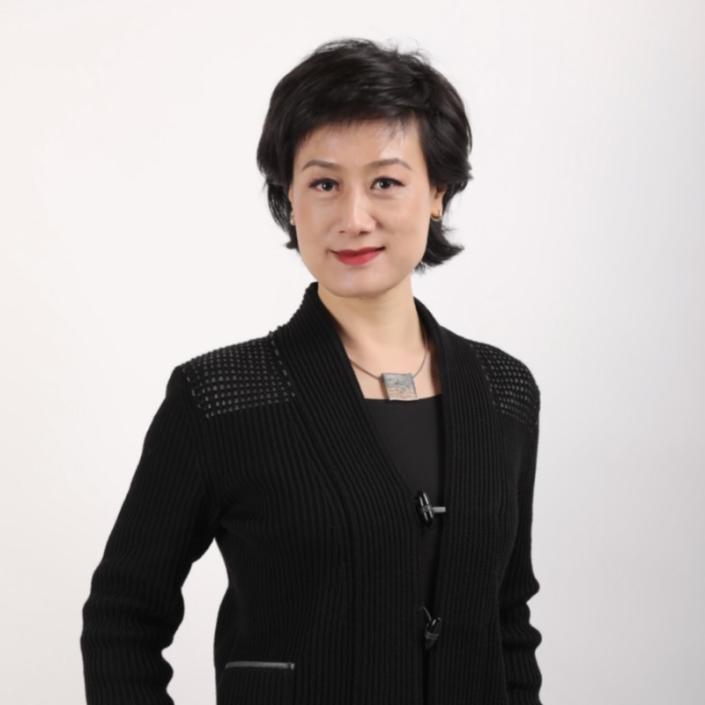
Courtesy
Liao has also expressed her concern regarding the new management at Condé Nast China. She has specifically taken aim at the current Condé Nast China president Li Li, who came from Bose, and Margaret Zhang, the Australian Chinese influencer turned Vogue China editorial director.
“The problem is not just in the structure, it is also in the people. With all due respect, neither Lynch nor Li understands the media industry, nor have they been able to grasp an understanding of Condé Nast’s core competencies and business niche [that it has held] for more than 100 years.
“How can someone who doesn’t understand the house fix the structure of the house? The most critical thing is that the company is now in a stormy and adverse situation, not in a smooth situation…Based on the current management, I don’t see any hope,” she contended in her WeChat posting.
In her articles, Liao claimed that her successor Li wanted to use her prior experience in consumer products and Vipshop’s e-commerce to develop a consumer revenue business, and spent 6 million renminbi, or around $941,000, hiring BCG Boston Consulting Group to conduct a consumer market survey.
But a year later, Condé Nast China’s consumer revenue was down by half, she alleged.
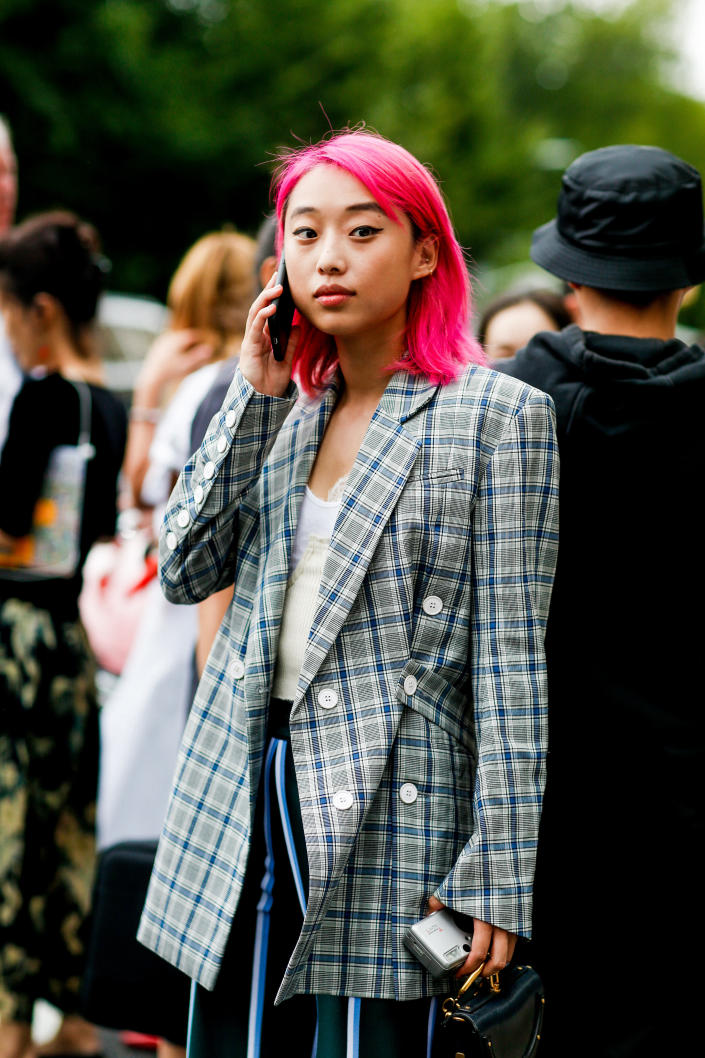
Sipa USA via AP
As for Zhang, the youngest editorial director in Vogue history, Liao revealed that she had emerged as a candidate to replace Vogue China’s founding editorial director Angelica Cheung back in 2019.
Liao clearly recalls interviewing her. She said the first meeting between them started well, but Liao soon realized that Zhang wasn’t particularly interested in the job. Her real intention, Liao argued on WeChat, was to ask Vogue China to fund a film she was planning to make.
“She tried to convince me that Vogue should sponsor her movie regardless of whether she joined Vogue.…I was really shocked at the moment. It made me question if her maturity and EQ [emotional intelligence] were sufficient to handle the important responsibilities of the editorial director of Vogue China. I started to have great doubts and reservations about her after this discussion.
“I really couldn’t imagine her holding a position that frequently requires close and complex communication on behalf of Vogue China with important clients and partners, and demands totally unconditional support from me. If the editorial director of Vogue China behaved as such, I would be very concerned and anxious, not knowing when and where any crisis would occur,” Liao wrote.
Liao also argued that Zhang was looking at China through a Western lens, rather than a Chinese one.
“It was really dangerous to have such a person be the editorial director of Vogue China. Why? Because she has been growing up and living in Australia and overseas, her understanding of China is too superficial and limited. It [would have been] difficult for her to communicate and work with China Pictorial harmoniously,” she added in her article.
In the same article, she claimed that around 25 percent of the company’s total workforce, or at least 81 people, have been replaced since her departure.
She also wrote that “the budget they [Vogue China] submitted for the year 2022 shows the most significant decline ever in the history [of the company], with net profit dropping by as much as 60 percent.”
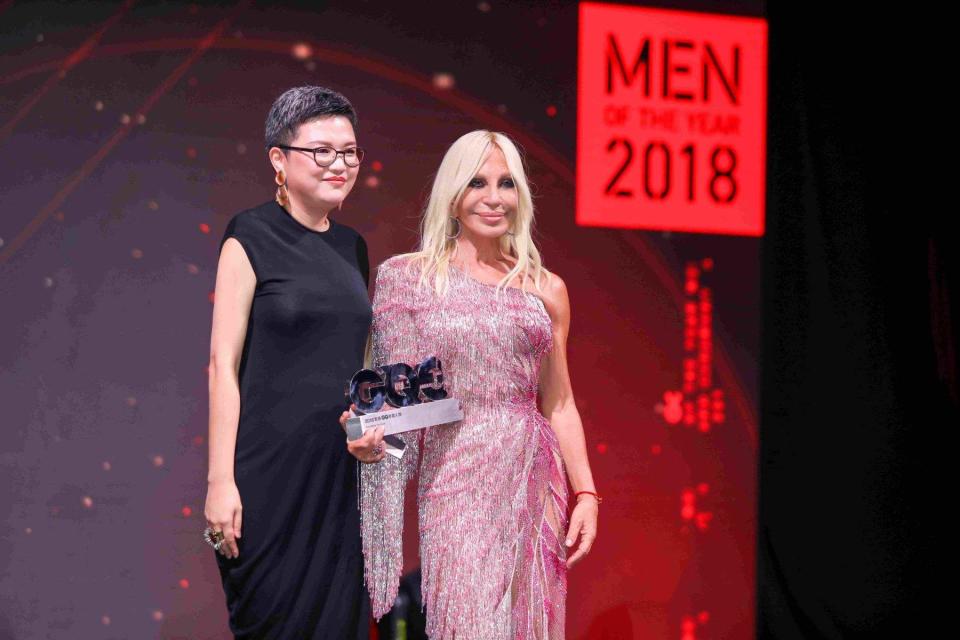
Baidu
One of her more recent articles was a direct response to a New York Times story about the publishing house’s new global ambitions. Liao branded the article as a “bluff.”
With regard to Lynch’s claim that Condé Nast is expected to break even in 2021 and return to profit in 2023, Liao claimed that the CEO was diverting attention from the core issue the company is facing.
“The group’s largest loss is not anywhere else but purely from the American company. If Lynch wants to prove his caliber, he should separately reveal the financial figures of the American company.…Yet he only dared to share the consolidated result, which is the net figure including all the contributed profits from global Condé Nast’s non-U.S. markets, barely reaching break-even,” she wrote.
Liao also disagreed with Wintour’s vision of fashion being a global language.
“Over the past decades, this American-born Vogue media brand could successfully expand into the global markets only because Jonathan Newhouse, the-then chairman of Condé Nast International, decided to take the approach to embrace the local culture, to endorse and celebrate the fashion industry and talents in local markets with Vogue’s international power and resources.
“Editors of the various editions have acted as the essential bridge for cross-cultural collaborations. With each of their efforts to interpret Vogue’s fashion from local perspectives, Vogue smoothly blended into each market with no cultural invasion. That is the powerful competitive edge of Condé Nast, not Ms. Wintour,” she argued.
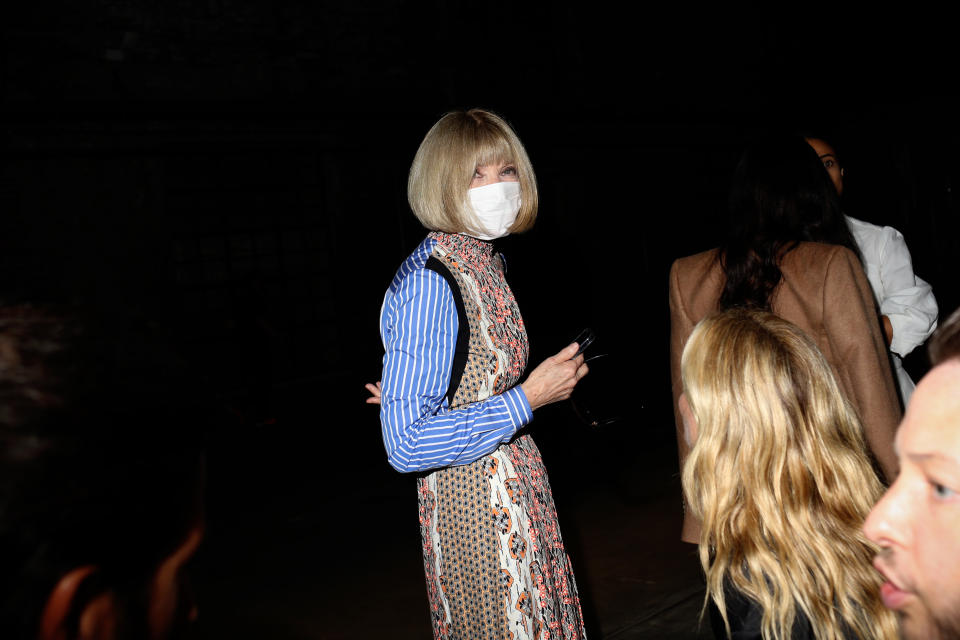
Lexie Moreland/WWD
From Liao’s point of view, “the top priority for Condé Nast at the moment [should be] to transform the organization fully to focus on its core competency, and to create a working environment with no barriers and restrictions,” instead of cutting costs in the name of globalization.
“I am afraid what [Lynch] deemed as cost duplications is exactly the vital core of Condé Nast. In effect, he is converting the fantasy-creation media company into an ordinary boring news agency. What they mentioned as ‘local talents’ involvements’ in reality completely disempowers the local management in each office, making every global staff member listen solely to the direct command from the New York headquarters,” she wrote.
“This is not globalization. All global markets are serving the centered American value. It is global Americanization,” she added.
Despite the criticism, Condé is ready for an encore in the East Asian market, with the launch of Vogue Philippines. The 29th edition of Vogue will launch this September in partnership with Mega Global Licensing Inc.
Like many, Liao believes the reason for all the changes, which started with the merger of Condé Nast International and Condé Nast U.S. in 2018, is that the Newhouse family wants to offload Condé Nast. The company lost about $100 million in 2019, according to a New York Times report.
There has been widespread speculation for at least the last decade that the Newhouse family was looking to sell Condé, with everyone from Apple to Amazon and Google mentioned as possible acquirers. The family has always denied the business was on the block.
“On the one hand, Lynch centralizes all the power to the New York headquarters. On the other hand, he keeps Anna Wintour, the ‘symbol’ for this company’s content glory while making all other senior talents leave. All these moves are steps to prepare for the sellout. That is why Lynch jokingly said to Wintour at the end of the interview with the New York Times: ‘You can’t retire before I leave Condé Nast,'” Liao wrote.

Courtesy
Liao added that when she and her colleagues heard rumors of a sale a few years ago, they all “sincerely hoped that it was merely an untrue rumor. It was a hope based on our love for this company.”
RELATED:
Ousted Condé Nast China President Wins Unlawful Dismissal Arbitration
Margaret Zhang Named Vogue China’s New Editorial Director
Condé Nast Names New China Boss, Li Li
Sign up for WWD's Newsletter. For the latest news, follow us on Twitter, Facebook, and Instagram.

 Yahoo Sports
Yahoo Sports 